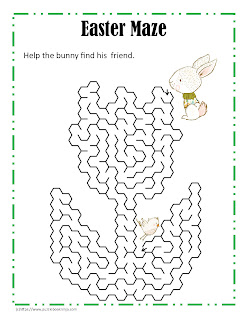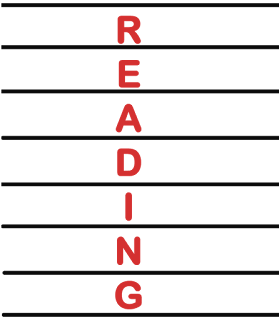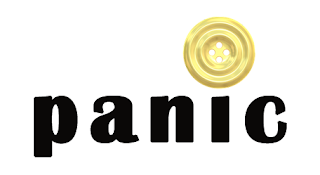So,
What's In a Definition?
According to dictionary.com a puzzle is defined as,"a toy, problem, or other contrivance designed to amuse by presenting difficulties to be solved by ingenuity or patient effort."
The first thing that comes to mind when I read this definition is all the jigsaw puzzles that I loved to do as a kid, and continue to be a source of delight and challenge to many. Completing jigsaw puzzles certainly require ingenuity (problem solve a strategy to complete the picture in the least amount of time) and patient effort to complete. Especially, if the puzzle is a two-sized puzzle!
The other thought that comes to mind is the myriad of logic puzzles, picture puzzles, mazes and challenges to the brain that I loved to solve, and continue loving to solve.
Then, I learned another definition for puzzle.
Scott Kim's TED talk provides another perspective for puzzle:
"A puzzle is a problem that is fun to solve and has a right answer. Fun to solve, as opposed to everyday problems; has a right answer, as opposed to toys and games. By toy, [he] means something you play with that doesn't have a particular goal..."
To help understand the definition, let's use the crossword puzzle.
Crossword puzzles are:
- fun to solve
- there is one right answer, and
- it's not a toy or game like a game of darts, or toy like a doll or Lego(R)
Why Blog About Puzzle Definition?
When one attributes a definition or characteristic to something specific, then moving forward when I refer to the term puzzles, you know that it's referring to the brain teaser type of puzzles that are "fun to solve, have one right answer and [they are not] a toy or game". This blog is connected to the ever expanding website Learn With Puzzles that share free, downloadable, printable puzzles to solve.
Let's look at some types of these brain teasers.
Logic Puzzles
One is hard pressed not to be challenged by these types of puzzles. Logic puzzles require the use of either/or both inductive and deductive reasoning skills. Sudoku like puzzles can take many forms. Learn With Puzzles offers a variety of these brain teasers, each drawing upon both problem solving strategies and the use of logic to help solve the unique solution.
One category of logic puzzles is a collection of Sudoku Puzzles.
 |
| Sudoku Puzzle Collection |
This group of brain teasers includes 5 printable Sudoku puzzles per group of puzzles. They are labeled challenging.
Another form of brain teaser that uses the same basic rules as the Sudoku puzzle is called Alphadoku puzzles. These fun puzzles are created using a unique 9-letter word: 9 different letters to avoid duplication.
And, one of my absolute favorites is the fiendish Sudoku puzzles that include 5 basic grids, with 4 intersecting smaller 3x3 grids. They definitely longer to complete, and if one puzzle is wrong, then, you need to erase it and start again!
Because life is not always experienced at the two extremes, brain teasers also vary in their level of difficulty. The category of -doku puzzles expands to include puzzle varieties such as Calcudoku and Division Sudoku puzzles.
Logic puzzles are fun to do, engage the brain, and require problem solving skills to arrive at "one right answer". However, other brain teaser puzzles are equally challenging and fun to solve.
 |
| Alphadoku Puzzle #01 |
And, one of my absolute favorites is the fiendish Sudoku puzzles that include 5 basic grids, with 4 intersecting smaller 3x3 grids. They definitely longer to complete, and if one puzzle is wrong, then, you need to erase it and start again!
 |
| Beginner Samurai Sudoku Puzzle |
Because life is not always experienced at the two extremes, brain teasers also vary in their level of difficulty. The category of -doku puzzles expands to include puzzle varieties such as Calcudoku and Division Sudoku puzzles.
 |
| Calcudoku Puzzle |
 |
| Division Sudoku |
Logic puzzles are fun to do, engage the brain, and require problem solving skills to arrive at "one right answer". However, other brain teaser puzzles are equally challenging and fun to solve.
Brain Teaser Puzzles
I suppose that most puzzles are considered brain teasers. Even I use these words interchangeably with the word, puzzles. However, I use this category to include a plethora of other puzzle types, equally fun and exciting to solve. Everyone, including myself, has his/her own favorite. Some brain teasers are easier to complete than others. I have to admit that there are puzzles that I consciously avoid! And, I wonder if it is because I have yet to understand how to solve them. To look at those brain teasers causes me confusion. So, nope! It's not happening, and I move on to the next puzzle.
Do you, or your kids, love to solve picture puzzles? These types of brain teasers can take many forms. From comparing two pictures for dissimilarities, to rebus puzzles and some mazes, the premise is the same. The puzzles involve pictures of one form or another.
Picture Puzzles - Mazes
Mazes are a great way to help young students work on their fine motor skills, visual acuity and problem solving skills. As they look for and trace the path from the IN arrow to the OUT arrow (or picture), they need to:
- make sure to draw the path without crossing over any lines (unless specified by the maze),
- visually scan the puzzle to decide which path to take while
- using problem solving strategies (guess and check/trial and error/looking ahead) to complete the activity.
 |
| Easter Maze |
 |
| St. Patrick's Day Maze |
Picture Puzzles - Rebus
This is an exciting new category of puzzles that is currently under development. Do you remember the rebus story about The Little Red Hen? That was my first introduction to this form of puzzle. My interests grew to include puzzles that were a play on words involving a combination of words and pictures. Some people call these puzzles 'Wackie Wordies'.
Can you 'decode' these images? The first one is done for you. The second and third samples will give you an idea of the future.
 |
| ANSWER: Reading Between The Lines |
 |
| ANSWER: |
 |
| ANSWER: |
Next Steps
My next step is a next step for you, our readers!
Challenge yourself to try:
- a puzzle that is your favorite
- a puzzle that you are familiar with
- a puzzle that is brand new to you
Let us know what you discovered.
Next planned blog post
How Many Puzzle Types Do You Know?
Question
Do you have a favorite puzzle that you like to solve?
Share your comments, below.
Cheers,
Liz
No comments:
Post a Comment
Thank you for your comments. They have been submitted for moderation.